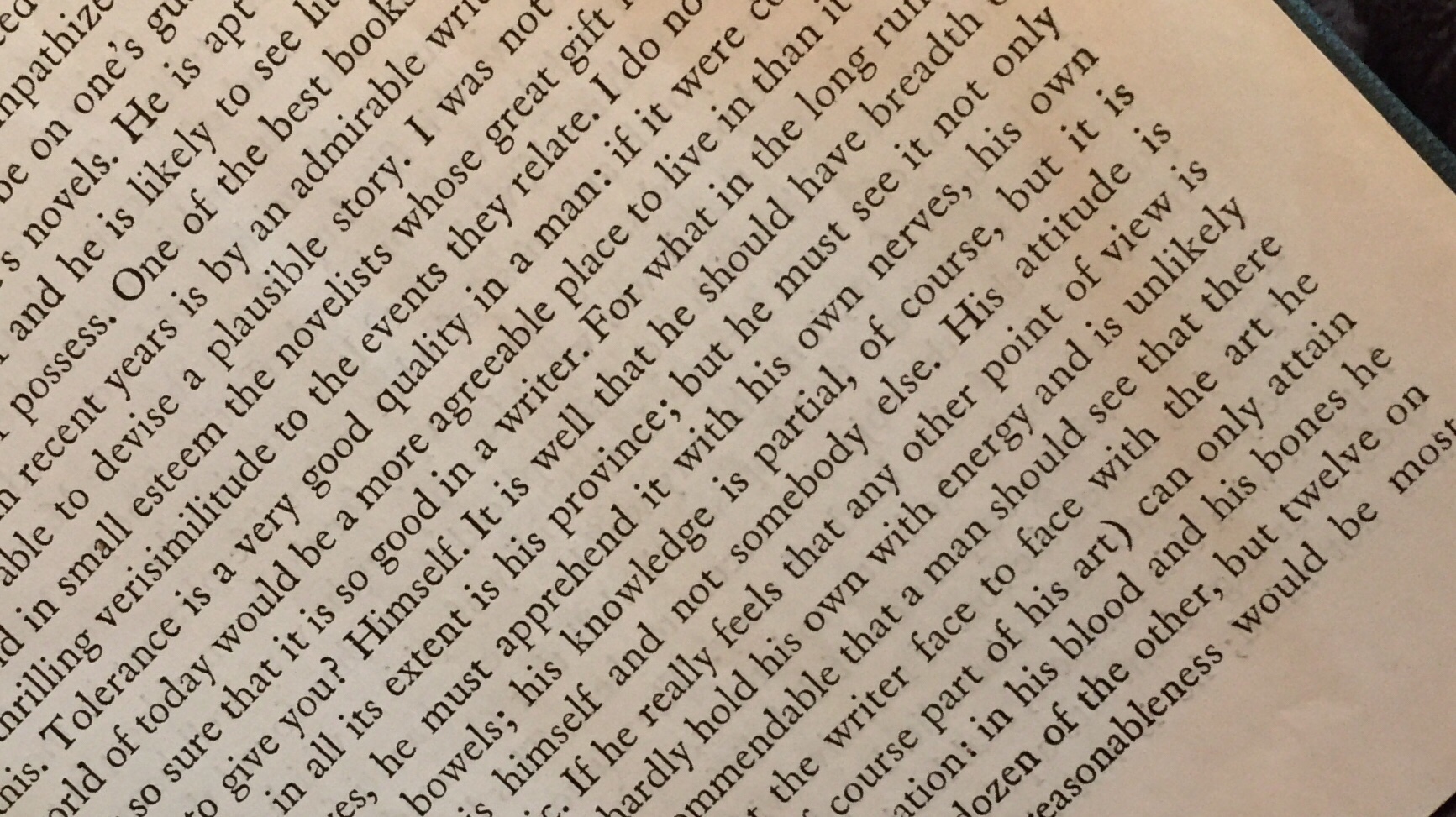“Tolerance is a very good quality in a man: if it were commoner, the world of today would be a more agreeable place to live in than it is; but I am not so sure that it is so good in a writer. For what in the long run has the writer to give you? Himself. It is well that he should have breadth of vision, for life in all its extent is his province; but he must see it not only with his own eyes, he must apprehend it with his own nerves, his own heart and his own bowels; his knowledge is partial, of course, but it is distinct, because he is himself and not somebody else. His attitude is definite and characteristic. If he really feels that any other point of view is as valid as his own, he will hardly hold his own with energy and is unlikely to present it with force. It is commendable that a man should see that there are two sides to a question; but the writer face to face with the art he practises (and his view of life is of course part of his art) can only attain this standpoint by an effort of ratiocination: in his blood and his bones he feels that it is not six of one and half a dozen of the other, but twelve on his side and on the other zero. This unreasonableness would be most unfortunate if writers were few, or if the influence of one were so great as to compel the rest to conformity; but there are thousands of us. Each one of us has his little communication to make, a restricted one, and from all these communications the readers can choose, according to their own inclinations and their own experience of life, what suits them.”
—W. Somerset Maugham, “Introduction,” in Tellers of Tales (New York; Doubleday, Doran & Co., 1939), pp. xvii-xviii.

